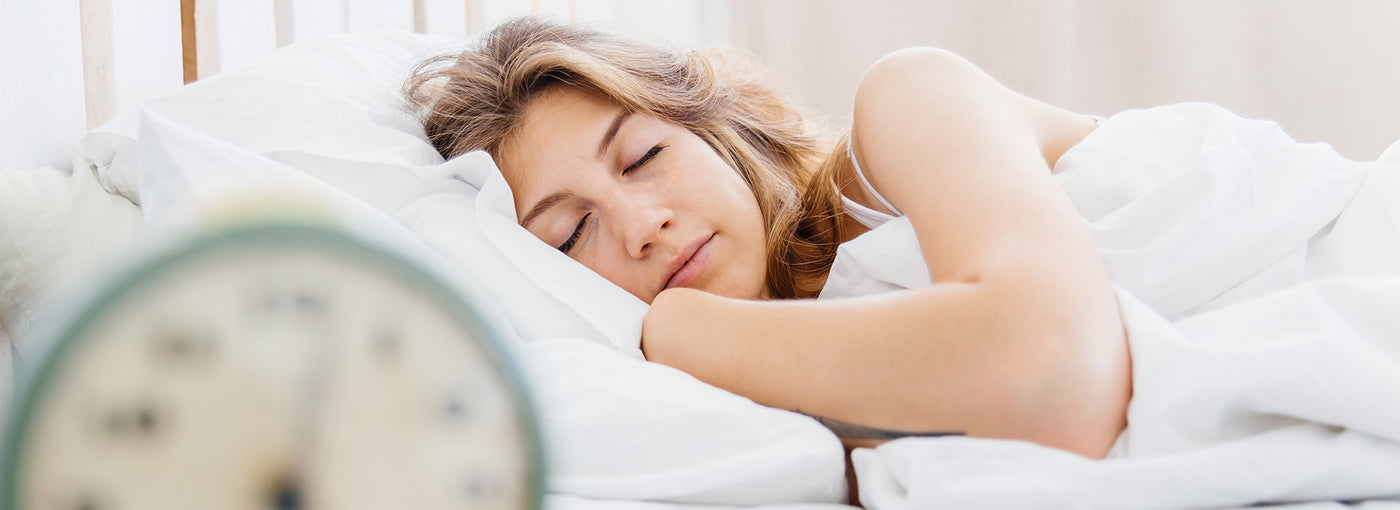Your Cart is Empty

Just like our bodies change over time, so do our sleep patterns. As we grow older, sleep tends to become more difficult. The causes can vary but typically as we age, we find ourselves waking up more frequently throughout the night or have a harder time falling asleep. So, what’s the reason for this?
What happens during sleep?
Sleep occurs in several stages where we experience dreamless periods of light sleep, deep sleep, and REM sleep, which is the time where dreams are most prevalent. This three step cycle repeats throughout the night. You can learn more about how we sleep here.
How much sleep do we need?
Why do we get less sleep as we get older?
From birth to adulthood, the amount of sleep we require cuts in half. The reason for this is that sleep is necessary in order to build mental and physical development, which is why newborns, infants, and children need much more than adults.
As we get older, total sleep hours decrease as the duties of life take over. Your days become busier, demands are higher, and sleep starts to become less of a priority. Unfortunately, when we become adults, that’s when the most sleep problems start to begin. You may start feeling sleepier earlier on in the day, wake up more during the night, and have an overall less deep, soothing sleep.
When we sleep less deeply and there are more disturbances, we spend a lesser amount of time in the REM cycle. On average, older people can wake up three or four times a night. Other factors can also play a role, such as the need to get up to use the bathroom, anxiety, sleep disorders, or discomfort.
What does age have to do with it?
In many cases, the change in sleep patterns has a lot to do with age and getting older.
Are you getting enough sleep?
Everyone’s sleep needs are different so to best determine if you are getting an adequate amount of zzz’s, ask yourself about how you feel when you are awake. If you feel rested and alert, chances are you are sleeping just fine at night. However, if you are noticing that you are sleepy during the day, you may need to assess why. Try making changes in your sleep and lifestyle habits. If that doesn’t work, speak to your doctor.
Comments will be approved before showing up.